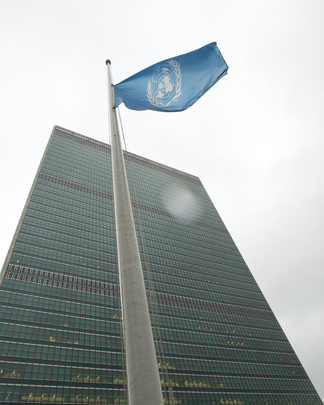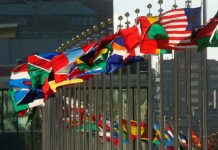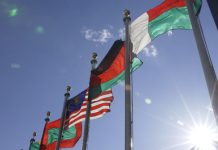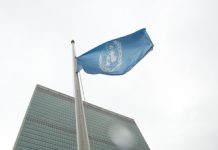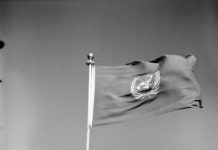Myanmar quake: funding must be stepped up to help victims, says UN’s aid chief
As the full extent of the devastating earthquake in Myanmar becomes clear, the UN’s top aid official Tom Fletcher has said that much more funding is needed to support the emergency response.
International search and rescue teams have been deployed and $5 million has been allocated from the UN’s crisis fund to help local partners who support communities affected by the disaster.
But the need for emergency food, water and medicines remains huge after last Friday’s disaster which killed at least 2,700 people.
In a tweet, Mr. Fletcher noted that the aid response “has been hampered by a lack of funding” in addition to damage to communications and transport links.
He also called for “unrestricted, safe access” for humanitarians across the country which has seen years of heavy fighting since a military coup in 2021, although Myanmar’s military junta has reportedly rejected a ceasefire announced by rebel fighters after the earthquake.
Gaza: UN rights chief Türk urges independent probe into killing of aid workers
To Gaza, where UN human rights chief Volker Türk has added his voice to widespread condemnation of the killing of 15 medical and humanitarian workers – including one UN staffer – by the Israeli army.
The High Commissioner for Human Rights said that the discovery of their bodies buried in the sand under their clearly marked and destroyed vehicles raised “significant questions” about the conduct of the Israeli forces.
The killing of aid workers is also deeply concerning because “tens of thousands of Palestinians need help while they are reportedly trapped in Tall Al-Sultan (in) Rafah” Mr. Türk explained.
With more, here’s UN human rights office spokesperson Thameen Al-Kheetan:
“Medical personnel and humanitarian and emergency workers must be protected by all parties to the conflict, as required by international humanitarian law…Israel
as the occupying power, has the responsibility of protecting civilians and facilitating their access to basic lifesaving services, including healthcare.”
UN humanitarians warned meanwhile that more than 140,000 people have been displaced once again in Gaza because of new Israeli evacuation orders.
On Monday, the orders impacted the cities of Rafah and Khan Younis.
According to the UN aid coordination office, OCHA, since 18 March and before the latest evacuation orders, at least 184,000 people had been newly uprooted across Gaza.
The development comes amid reports that Israel is expanding military operations across the enclave, following overnight strikes in southern areas.
Media reports indicate that a health clinic run by UNRWA, the UN agency for Palestine refugees in northern Gaza, killed at least 19 people on Wednesday and wounded many others.
Biological Weapons Convention turns 50, an international success story
Finally, an international success story: the Biological Weapons Convention, which is celebrating 50 years on the global stage.
Half a century ago, during the Cold War, the United States and Russia agreed to ban biological weapons – including viruses and toxins.
Today, the treaty is respected almost universally and it’s global threats like COVID-19 that help to explain why, says Daniel Feakes from the UN Office for Disarmament Affairs in Geneva:
“It’s actually relevant for all countries in a world because I think all countries in the world have now realized that the threat of biological weapons is something that no one country can deal with by itself. We’ve seen these recent examples, where diseases can cause pandemics can cause things that affect everybody in the world; so, no one country can close itself off…diseases will cross borders, no matter what.”
Critics of the convention point out that it has no enforcement mechanism – that was something that superpowers Russia and the United States couldn’t agree on in 1975.
But Mr. Feakes, who’s Chief of the Biological Weapons Convention Implementation Support Unit, said that the strength of the accord is demonstrated by the fact that no country openly admits to having a bioweapons stockpile.
He also explained that verification of a biological weapon is extremely complicated because its active agents often “exist in nature”.
You can hear the full interview on the UN News audio hub now.
Daniel Johnson, UN News
Music composed and produced by Joachim Harris. All rights reserved.
Source of original article: United Nations (news.un.org). Photo credit: UN. The content of this article does not necessarily reflect the views or opinion of Global Diaspora News (www.globaldiasporanews.com).
To submit your press release: (https://www.globaldiasporanews.com/pr).
To advertise on Global Diaspora News: (www.globaldiasporanews.com/ads).
Sign up to Global Diaspora News newsletter (https://www.globaldiasporanews.com/newsletter/) to start receiving updates and opportunities directly in your email inbox for free.


